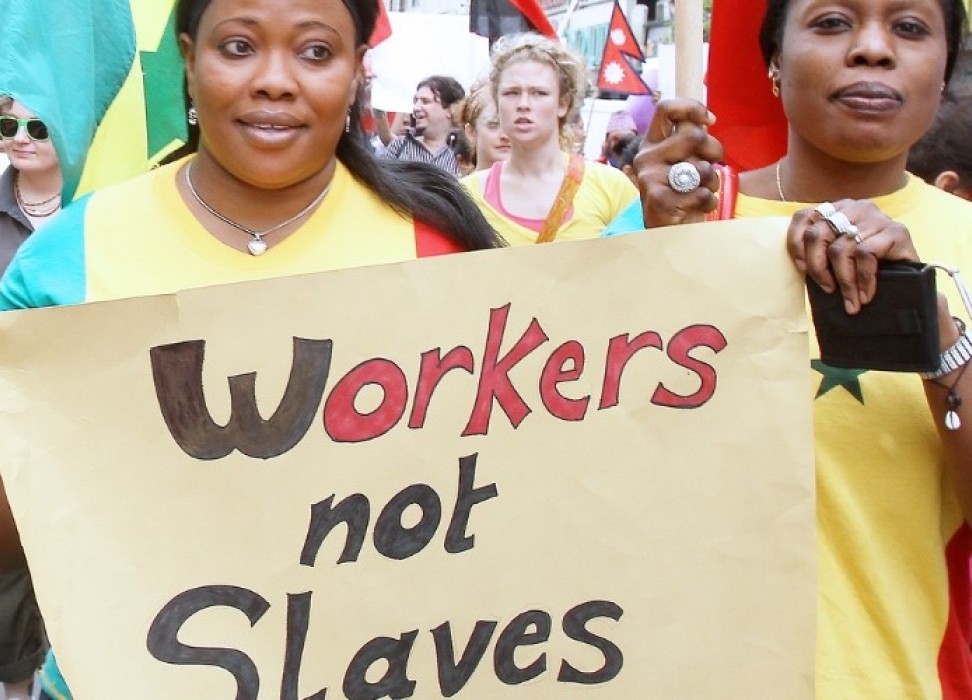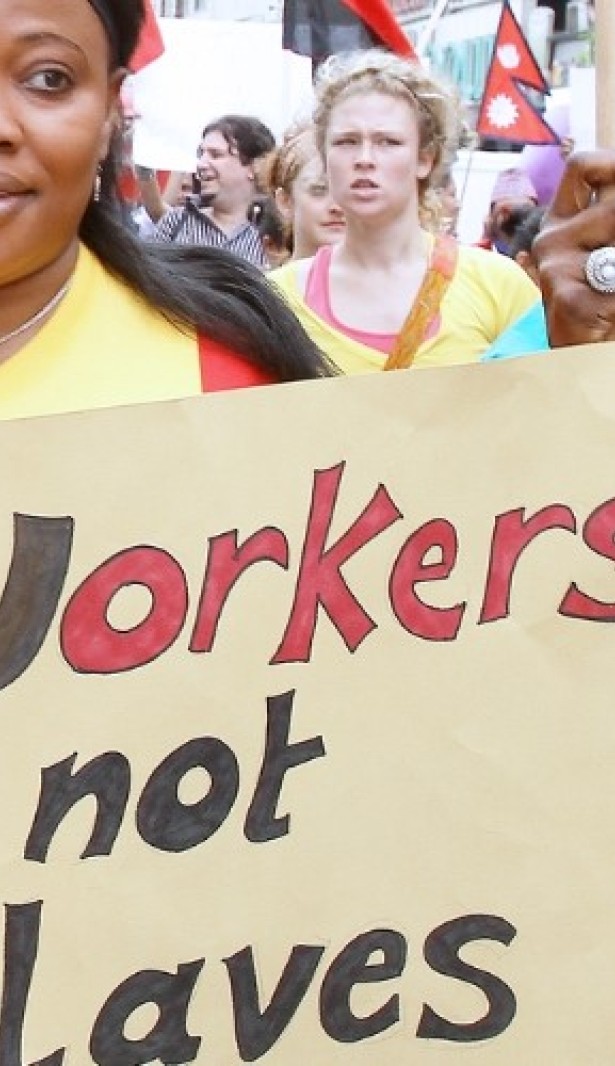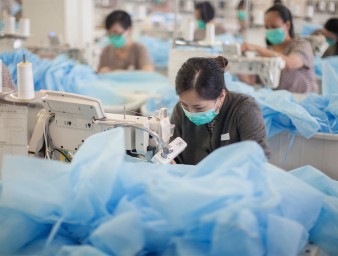The unspoken servitude of women domestic workers
17 September 2018

“Countless households around the world rely on migrant domestic workers. This contribution to society should not only be acknowledged and valued but it is also time for States and private employment companies to protect, respect and fulfil the human rights of all migrant domestic workers, including of the most vulnerable ones,” said Urmila, Bhoola, UN expert on contemporary forms of slavery.
Bhoola was presenting her latest report to the Human Rights Council on the impact of domestic servitude on women migrant domestic workers. The human rights violations these women endure remain mainly invisible as their servitude is confined to the private sphere of their employers’ homes.
“In addressing domestic work from a human rights perspective, domestic servitude can be replaced with decent work and social justice, and a workplace created which is free of violence and harassment,” she said.
Because women have integrated the global labour market, households increasingly rely on domestic workers to fill that gap. Domestic workers have also gradually taken up roles traditionally reserved to extended family members or public care service providers.
“Households may find it tempting to resort to the cheapest and easiest solutions for care on the market, which are commonly domestic workers,” Bhoola said.
Paid domestic work is therefore a highly feminized sector, with women making up 70 percent of the 70 million global household employees, according to the International Labour Organization (ILO). A sizeable portion of these women, 11 million, are migrants. Many women, driven by poverty, find themselves forced to accept working and living conditions that violate their fundamental human rights.
In those circumstances, many migrant domestic workers are exposed to abuse such as physical and social isolation; restriction of movement; psychological, physical and sexual violence; intimidation and threats; retention of identity documents by their employer; withholding of wages; abusive working and living conditions and excessive overtime.
“If one or more of these situations applies, the ILO considers it to constitute forced labour,” Bhoola explained. “If those indicators of forced labour are combined with a lack of choice and strong control over their personal freedom, which many employers exercise, domestic workers may find themselves trapped in servitude, or even slavery.”
The expert pointed out that gender-based violence against domestic workers is often ignored, even though such abuse can potentially amount to torture. Several deaths of domestic workers have even been made public in the recent past.
Victims of servitude also face significant barriers in accessing justice for these rights violations; some migrant workers, Bhoola said, are unfamiliar with reporting channels, do not trust governmental authorities, or simply do not have access to the justice system under national laws.
Ultimately, the expert said, the significant asymmetry of power between domestic workers and their employers constitutes an obstacle to accessing justice. The burden of proof on the victims increases their difficulty in substantiating coercion and abuse.
Bhoola further highlighted that very few victims of servitude seek compensation for exploitation and as survivors do not always identify as victims. Others continue to endure the abuse because they have to send money to their families back home.
“A sustainable domestic work economy should ensure access to justice, effective enforcement and remedies in the case of exploitation and abuse, while also addressing issues of prejudice and discrimination against migrant women through advocacy,” she said.
In recent years however, positive developments have been occurring. Several countries have taken steps to reduce the risks of domestic servitude. In Germany, domestic workers present themselves personally once a year at the Federal Foreign Office for an interview upon renewal of their work permits. In Colombia, domestic workers are protected by labour law. Qatar ended the kafala system of labour sponsorship in 2017. Saudi Arabia and the Philippines signed a bilateral agreement in 2013 that contains specific joint regulation of private employment agencies.
Bhoola revealed however, that few countries have ratified the ILO Domestic Workers Convention and that migrant domestic workers themselves face difficulties in forming or integrating unions to defend their human rights.
“Often, domestic work is not considered as “real work” due to underlying social norms and discriminatory attitudes, particularly if migrant domestic workers are also members of marginalized communities such as indigenous or caste-affected groups or if the employers are from higher castes,” she said.
Migration can be a positive and empowering experience for many, yet increasingly it becomes clear that the lack of human rights-based migration governance and discrimination against migrants is leading to routine violations of the human rights of migrant women.
The expert urged States to increase their efforts in addressing and preventing domestic servitude, calling it “an abysmal and degrading human rights abuse.” In her report, she sets out a series of recommendations to States, including removing obstacles to domestic workers’ access to justice, and ensuring that employers who are perpetrators are held accountable.
17 September 2018




